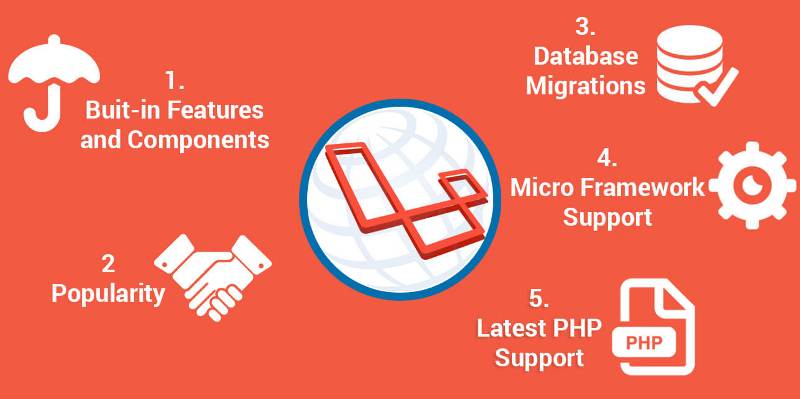In today’s digital age, web applications serve as the backbone of many businesses, offering seamless interaction with users and delivering a wide range of services. However, as the number of web applications increases, so do the security threats associated with them. Developing secure web applications is no longer an option but a necessity. For businesses relying on PHP, one of the most popular server-side programming languages, the challenge lies in harnessing its flexibility while safeguarding their applications against potential vulnerabilities.
In this blog, we delve into the strategies and best practices to develop secure web applications using PHP, covering everything from common threats to advanced security measures.
Why Choose PHP for Secure Web Applications?
PHP remains a go-to choice for web development due to its simplicity, flexibility, and extensive library support. Here are some compelling reasons why PHP is widely used:
- Open-Source Nature: PHP is open-source, making it accessible to developers worldwide and backed by a robust community.
- Versatile Frameworks: Frameworks like Laravel, Symfony, and CodeIgniter provide built-in security features, reducing the chances of vulnerabilities.
- Extensive Library Support: PHP offers a plethora of libraries and tools for secure coding and encryption.
- Cross-Platform Compatibility: PHP is compatible with various platforms, ensuring seamless integration with web servers and databases.
Partnering with a professional PHP development company ensures that your web applications benefit from these advantages while prioritizing security.
Common Security Threats in PHP Web Applications
Before diving into best practices, it’s essential to understand the common security threats:
- SQL Injection: Malicious users inject SQL queries to manipulate or steal data from your database.
- Cross-Site Scripting (XSS): Attackers inject malicious scripts into web pages viewed by other users.
- Cross-Site Request Forgery (CSRF): An attacker tricks a user into performing unintended actions on a web application.
- Session Hijacking: Unauthorized access to user sessions allows attackers to impersonate users.
- Remote Code Execution (RCE): Exploiting vulnerabilities to execute arbitrary code on the server.
- File Inclusion Vulnerabilities: Exploiting file inclusion functions to access sensitive data or execute malicious code.
Addressing these vulnerabilities requires a comprehensive approach, blending secure coding practices and robust web development services.
Best Practices for Developing Secure Web Applications Using PHP
1. Validate and Sanitize User Input
Unvalidated or unsanitized user input is one of the leading causes of security vulnerabilities.
- Use PHP functions like filter_var() and htmlspecialchars() to sanitize inputs.
- Implement strict validation rules using frameworks like Laravel’s validation feature.
- Avoid directly embedding user input in SQL queries; use prepared statements instead.
2. Use Prepared Statements and Parameterized Queries
To prevent SQL injection attacks:
- Always use prepared statements with parameterized queries.
- Avoid constructing SQL queries dynamically using user inputs.
3. Implement Secure Session Management
Sessions are critical for managing user authentication. Secure your sessions by:
- Using session_start() with secure options like httponly and secure
- Regenerating session IDs frequently to prevent session fixation attacks.
4. Protect Against Cross-Site Scripting (XSS)
- Encode all output using htmlspecialchars() to neutralize malicious scripts.
- Implement Content Security Policies (CSP) to restrict the sources of executable scripts.
5. Use CSRF Tokens
Prevent CSRF attacks by generating unique tokens for every form submission:
Include this token in your forms and validate it on the server side.
6. Secure File Uploads
Allowing users to upload files can be risky. To secure file uploads:
- Validate file types and extensions.
- Store uploaded files outside the web root.
- Rename files using unique identifiers to prevent overwriting.
7. Encrypt Sensitive Data
Protect sensitive data like passwords using encryption:
- Use password_hash() for hashing passwords.
- Avoid storing sensitive data in plain text.
8. Keep PHP and Dependencies Updated
- Regularly update PHP to the latest stable version to patch known vulnerabilities.
- Update libraries and frameworks to their latest versions.
9. Use HTTPS
Encrypt communication between the client and server using HTTPS:
- Install SSL/TLS certificates on your server.
- Redirect all HTTP traffic to HTTPS using .htaccess or server configurations.
10. Enable Error Logging and Disable Error Display
Error messages can expose sensitive information:
- Log errors to a file using error_log().
- Disable error display in the production environment.
11. Leverage Security Headers
Enhance security by implementing HTTP security headers:
- Strict-Transport-Security (HSTS) for enforcing HTTPS.
- X-Frame-Options to prevent clickjacking.
- X-Content-Type-Options to mitigate MIME-sniffing.
12. Limit Access to Sensitive Directories
Restrict access to directories containing sensitive files:
- Use .htaccess to deny access to configuration files like php.
- Keep configuration files outside the web root.
Advanced Security Practices for PHP Web Applications
1. Implement Two-Factor Authentication (2FA)
Strengthen authentication by requiring a second verification factor:
- Integrate 2FA libraries like Google Authenticator.
- Use third-party APIs for SMS or email-based authentication.
2. Conduct Regular Security Audits
- Partner with a PHP development company for periodic security audits.
- Use tools like OWASP ZAP and Burp Suite to identify vulnerabilities.
3. Adopt Role-Based Access Control (RBAC)
Limit user permissions based on roles to minimize the impact of compromised accounts:
- Define roles like admin, editor, and viewer.
- Use frameworks like Symfony for RBAC implementation.
4. Deploy Web Application Firewalls (WAFs)
WAFs provide an additional layer of security by filtering malicious traffic:
- Use tools like ModSecurity for open-source WAF solutions.
- Configure rules to block common attack patterns.
Benefits of Hiring a Professional PHP Development Company
While these practices can be implemented in-house, partnering with a seasoned PHP development company ensures:
- Expertise: Professionals have experience handling complex security challenges.
- Efficiency: Accelerated development timelines with security baked in.
- Advanced Tools: Access to premium security tools and frameworks.
- Scalability: Secure applications that scale seamlessly with your business.
Integrating Mobile App Development Services with Secure Web Applications
In today’s interconnected digital landscape, web applications often interface with mobile apps. By integrating web development services with mobile app development services, businesses can:
- Ensure consistent security across platforms.
- Streamline authentication processes like Single Sign-On (SSO).
- Share encrypted APIs for seamless data exchange.
Final Thoughts
Developing secure web applications using PHP is a continuous process that requires vigilance, best practices, and the right expertise. From validating user inputs to implementing advanced measures like 2FA and WAFs, every step contributes to a robust security posture.
By collaborating with a professional PHP development company, businesses can leverage comprehensive web development services to create secure, scalable, and high-performance web applications. In the rapidly evolving digital landscape, prioritizing security is not just an investment in technology but a commitment to protecting user trust and business reputation






